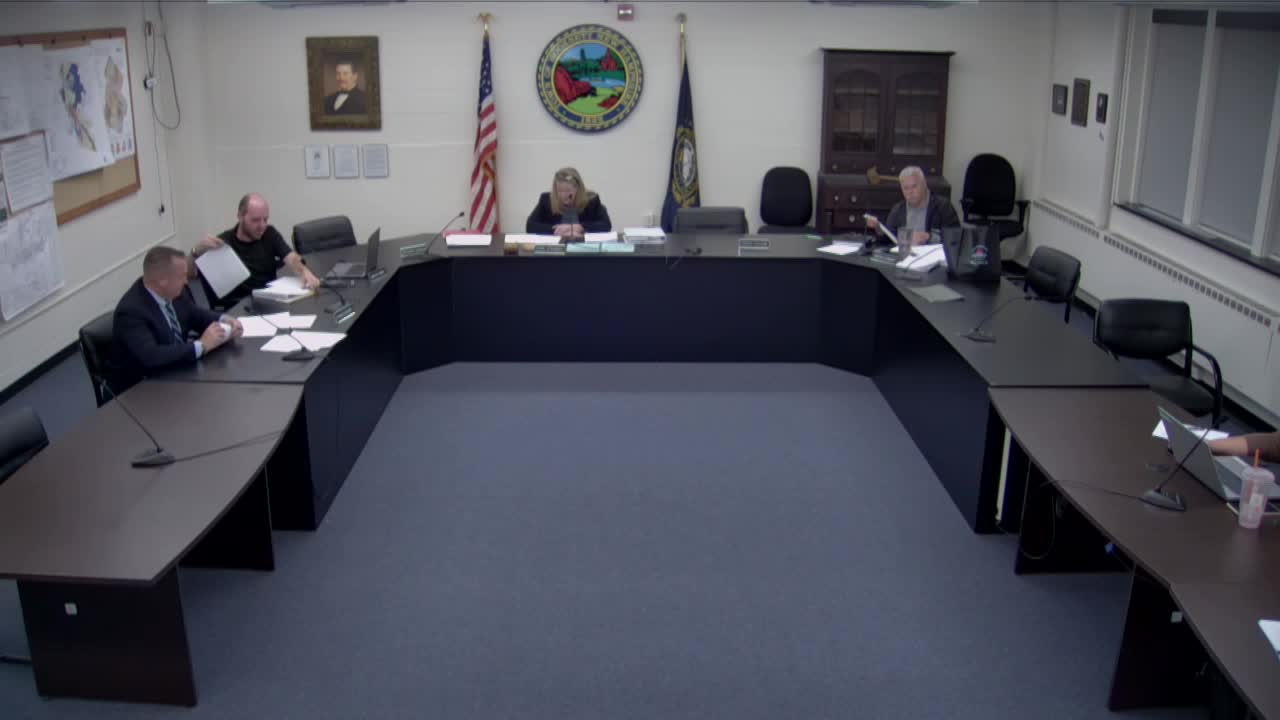Town planner’s appeal of administrative decision on 3‑unit conversion prompts legal-standing discussion; planner expected to withdraw
Get AI-powered insights, summaries, and transcripts
Subscribe
Summary
Grant McGregor, the town planner, filed an administrative appeal of a staff determination that converting an existing building to a third dwelling unit did not require a variance; the ZBA discussed standing, legal precedent, and timing and McGregor indicated he would likely withdraw and return to the Planning Board.
Hooksett Town Planner Grant McGregor raised an administrative appeal to the Zoning Board of Adjustment challenging a staff determination that a proposed conversion of an existing building to a third dwelling unit did not require a variance.
McGregor explained the Planning Board had continued the applicant’s site-plan hearing after a Planning Board member questioned whether adding a third unit to an existing building that sits in the front setback constituted a substantial change requiring zoning relief. McGregor said he sought a determination before the next Planning Board hearing so the planning process would proceed with clarity. Zoning staff (Dana) and Town legal counsel reviewed the record and advised the conversion from two units to three within the existing footprint did not rise to the level of a substantial change that would require a variance; the building was constructed before 1985 and the multi-dwelling provision in the MDR zone permits conversions under certain criteria.
Board members and staff discussed standing and RSA 676:5, which allows an administrative appeal by “any officer, department, board, or bureau of the municipality affected by the decision of the administrative officer.” The board’s legal‑standing discussion noted New Hampshire case law (including a 2003 Hooksett conservation case) narrows who is ‘‘affected’’ and limits which municipal actors may bring rehearing requests. Town counsel had advised McGregor’s appeal faced a standing hurdle because it was unclear the planner, as drafted, met the statutory ‘‘affected’’ requirement. Board members and staff agreed the statutory language and case law make standing and timing complex, and that the Planning Board could seek legal advice directly if it wished.
After discussion Grant McGregor indicated he would likely withdraw the appeal and proceed to the Planning Board’s continued hearing on Oct. 20, where the matter can be resumed with any new legal guidance provided to that board. The Zoning Board did not take a formal vote on the appeal during the meeting; members noted the sequence of staff, Planning Board, and legal review made the matter fact‑specific and urged communication among departments and counsel in similar future cases.
Why this matters: the exchange highlights procedural limits on cross-board appeals under New Hampshire law, and it underscores the importance of early legal coordination between staff and boards when a Planning Board questions whether an action requires zoning relief.
